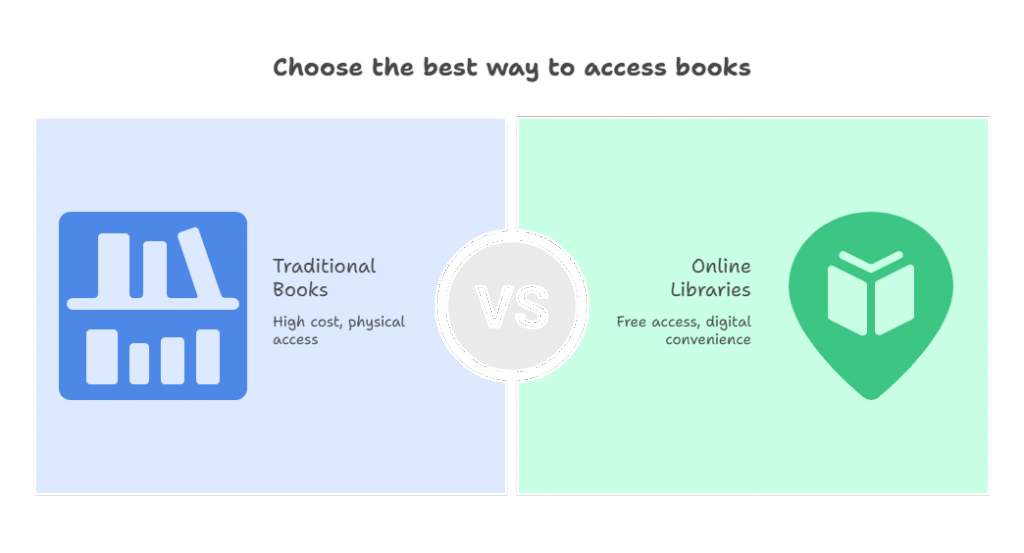Unlock the Hidden Dangers ocean of pdf has become synonymous with the promise of unlimited free ebooks. For years, sites like Oceansofpdf and similar platforms have offered downloadable PDFs of popular novels, textbooks, and more—often without the publisher’s or author’s permission.
But why do so many people turn to these sites? The answer is simple convenience and cost. In a world where the price of books can be a barrier, the idea of accessing a vast library for free is undeniably tempting.

Yet, as with any shortcut, there are hidden dangers and ethical questions to consider.
The Rise and Fall of Oceansofpdf: A Cautionary Tale
How Oceansofpdf Became a Household Name
Oceansofpdf burst onto the scene in the late 2010s, quickly becoming a go-to source for free books online. Its simple interface and massive selection made it wildly popular among students, avid readers, and even educators looking for quick access to hard-to-find titles.
But the site’s popularity also drew the attention of publishers and copyright holders. Legal battles ensued, and Oceansofpdf was eventually taken down. Still, its legacy lives on, with countless copycat sites and mirror domains popping up in its wake.
Real-Life Example: A Reader’s Dilemma
One user shared, “I found my favorite author’s new release on Oceansofpdf before it even hit stores. It felt like a win—until I realized the author wasn’t getting paid. Now I think twice before downloading from these sites.”
Free Books Online: The Double-Edged Sword of Web Piracy
The Pros: Accessibility and Opportunity
There’s no denying the appeal of free books online. For readers in countries where books are expensive or hard to find, sites like Oceans of PDF can feel like a lifeline. Students, in particular, often rely on these resources to access textbooks and academic materials.
The Cons: Legal Risks and Ethical Concerns
But there’s a darker side. Downloading copyrighted material without permission is illegal in many countries. Authors and publishers lose revenue, which can impact their ability to create new work. Plus, many “free book” sites are riddled with malware, phishing scams, and low-quality files.
The 2025 Perspective: Stricter Laws, Smarter Readers
In 2025, web piracy laws are tougher than ever. Search engines and ISPs are cracking down on illegal sites, and readers are becoming more aware of the risks. Still, the demand for free books online hasn’t disappeared—it’s just evolving.
Oceans of PDG: The Confusing World of Copycat Sites
If you’ve searched for “ocean of pdf” recently, you’ve probably seen sites with similar names—like Oceans of PDG or Oceansofpdf. These copycats often mimic the look and feel of the original, but they’re not always what they seem.
How to Spot a Fake
- Check the URL: Legitimate sites will have secure, clear URLs. Be wary of domains with extra letters or numbers.
- Look for Ads and Pop-Ups: Excessive ads or pop-ups are a red flag.
- Read Reviews: A quick search can reveal if a site is known for scams or malware.
User Quote: “I thought I was downloading a classic novel, but my computer got a virus instead. Lesson learned—always double-check the site.”
The Impact of La Niña 2025 on Digital Reading Trends
You might be wondering, what does La Niña 2025 have to do with ebooks? Surprisingly, climate events like La Niña can influence digital habits. In 2025, with extreme weather keeping more people indoors, demand for online entertainment—including ebooks—has surged.
More Time at Home, More Reading Online
As people spend more time at home, the search for free books online has spiked. This has led to a renewed interest in sites like Oceansofpdf, despite the risks.
Publishers Respond
Publishers are responding by offering more affordable digital options, limited-time free downloads, and subscription services to compete with piracy.
The Ethics of Free Books Online: What’s Fair, What’s Not?
Supporting Authors vs. Saving Money
It’s easy to justify downloading a free book—especially if you’re on a tight budget. But every download from a pirate site is a lost sale for the author. In 2025, with more authors self-publishing and relying on digital sales, this impact is bigger than ever.
Alternatives to Web Piracy
- Library Apps: Services like Libby and Hoopla let you borrow ebooks for free, legally.
- Project Gutenberg: Offers thousands of public domain books.
- Author Giveaways: Many authors offer free samples or run promotions.
Features and Usability: What Makes Ocean of PDF So Tempting?
Massive Selection
The biggest draw is the sheer volume of titles. From bestsellers to obscure textbooks, the “ocean” seems endless.
Easy Access
No logins, no payments, just a quick download. For many, this frictionless experience is hard to resist.
Risks Lurking Beneath the Surface
But with ease comes risk. Many files are poorly formatted, incomplete, or infected with malware. In 2025, cyber threats are more sophisticated, making caution essential.
The Risks of Using Ocean of PDF and Similar Sites Unlock the Hidden Dangers
Legal Risks
Downloading copyrighted material without permission can lead to fines or legal action. In some countries, even accessing these sites is illegal.
Security Risks
Many free book sites are breeding grounds for malware, ransomware, and phishing scams. In 2025, cybercriminals are targeting readers with fake downloads and pop-up ads.
Quality Risks
Files are often incomplete, poorly formatted, or riddled with errors. You might spend more time fixing a file than actually reading it.
The Pros and Cons of Free Books Online in 2025
Pros
- Accessibility: Opens up reading to those who can’t afford books.
- Variety: Huge selection of titles, including rare and out-of-print works.
- Convenience: Instant downloads, no waiting.
Cons
- Legal Issues: Risk of fines or prosecution.
- Security Threats: Exposure to malware and scams.
- Ethical Concerns: Authors and publishers lose revenue.
- Quality Problems: Poor formatting, missing pages, or low-quality scans.
How to Find Free Books Online—Legally and Safely
Use Library Apps
Apps like Libby, OverDrive, and Hoopla connect you to your local library’s digital collection. All you need is a library card.
Explore Public Domain Sites
Project Gutenberg, Internet Archive, and Open Library offer thousands of free, legal ebooks.
Look for Author Promotions
Many authors and publishers run free or discounted ebook promotions. Follow your favorite writers on social media for updates.
4. Try Subscription Services
Platforms like Kindle Unlimited or Scribd offer access to thousands of books for a monthly fee—often less than the price of a single paperback.
The Future of Free Books Online: What’s Next After Oceansofpdf?
Smarter Technology, Smarter Readers
In 2025, AI-powered search engines are better at filtering out illegal sites. Readers are more aware of the risks and more likely to seek out legal alternatives.
Publishers Adapt
Publishers are experimenting with new models—like ad-supported ebooks, pay-what-you-want pricing, and enhanced digital editions—to compete with piracy.
The Role of Community
Online book communities are helping readers discover legal, affordable ways to access books. Forums, social media groups, and book clubs are great places to share tips and resources.
FAQs
Is Ocean of PDF legal?
No, most sites offering copyrighted books for free without permission are illegal. Downloading from these sites can put you at risk of legal action and malware.
What happened to Oceansofpdf?
Oceansofpdf was taken down after legal action from publishers and authors. However, many copycat sites have appeared, often with similar names like Oceans of PDG.
Are there safe alternatives to Ocean of PDF?
Yes! Use library apps, public domain sites, and subscription services to access free or affordable ebooks legally and safely.
How can I avoid malware when searching for free books online?
Stick to reputable sites, avoid suspicious links, and use antivirus software. If a site is flooded with pop-ups or asks for personal information, it’s best to leave immediately.
Final Thoughts
The ocean of pdf is vast, tempting, and full of hidden dangers. While the promise of free books online is alluring, the risks—legal, ethical, and technical—are real. In 2025, smarter readers are choosing safer, legal alternatives and supporting the authors they love.
CLICK HERE FOR MORE BLOG POSTS
Liam is a freelance writer, blogger, and digital media journalist. He has a management degree in Supply Chain & Operations Management and Marketing and boasts a wide-ranging background in digital media.











